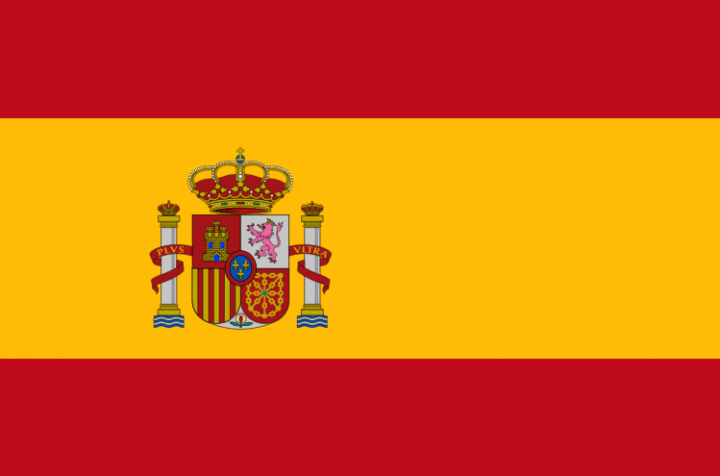“Boring” in Spanish and Other Languages
Since the word “boring” is rooted in the name of this blog, we decided to find out how it translates. How to say boring in Spanish and other popular languages from around the world.
Some of the languages we will be translating boring into are Spanish, French, German, Portuguese, Dutch, Italian, Swedish, and Finnish are covered.
While this might sound very easy, we will also be looking into other things related to the translation itself. On top of that, we will also give you real-life scenarios as to how to use it.
Don’t go anywhere as this article might prove useful to you when chatting with your foreign friends. That or being able to watch some good movies when bored that are in a foreign language.
Without wasting too much of your time, let’s start with the first one.
Boring in Spanish
Same as in English and French, the Spanish language has an adjective and noun meaning for the word. If you want to know more Spanish words but do not know the English meaning of them, then definitely get help with Spanish language translation services.
The adjective meaning is “aburrido”, while the noun meaning is “la perforacion”.
Case examples for “aburrido”
Aburrido isn’t the literal translation of the meaning, as it can be used for lots of other things. Aburrido can mean bored, tired, fed up, boring, tedious, etc.
- She’s the most boring person I know
- Es la persona más aburrida que
- The book you lent me was really boring
- El libro que me prestaste estuvo muy aburridor.
In the most basic translation of “I’m bored”, the Spanish say “Me aburro”.
Case examples for “la perforacion”.
- The machinery is used for the boring of trial holes.
- La maquinaria se usa en la perforación de pozos de prueba.
On the topic of Spanish, guinea pig in Spanish is cuy – we wrote a whole article about cuy asado in Peru.

Boring in French
Much like in many other languages, the French language has multiple words to describe being bored, boring, and the state of mind itself.
Boring is both an adjective and a noun, much like in the English language. The adjective meaning is “ennuyeux”, while the noun translates to “forage”.
Case examples for “ennuyeux”
Now, let’s tale a look at some case examples of how and when to use the word:
- He used to teach more theology and that was boring.
- Il enseignait la morale et c’était ennuyeux.
- I think this would be pretty boring.
- Il me semble que ce serait assez ennuyeux.
A common thing you’ll hear in France is “Je m’ennuine”, which translates to “I’m bored”.
Case examples for “forage”
Now, a few examples when using it as a noun:
- Parts for boring machinery.
- Pièces pour machinesde forage.
Boring in Italian
There is a simple translation for this word in the Italian language, and that word is “noioso”
Noioso is the adjective meaning for the word, and here are some case examples of how to use it in a real-life conversation.
- Isn’t that boring?
- Non è noioso?
- It was boring!
- Era noioso!
- If the book weren’t so boring, I would read it with you.
- Se il libro non fosse così noioso, io leggerei con te.
- It never gets boring.
- Non diventa mai noioso.
Mi annoio – I’m bored. Very simple, very short.
Boring in German
Now we will talk about the German translation of the word, and probably the weirdest and hardest one yet. Germans are known for having wacky and long words, but we are somewhat spared of that when it comes to “boring”.
The word we are looking for is “langweiligh”, which means boring. There are other meanings for the word, but we won’t get into that as it will take us an entire article.
We will mention the noun version of the word, which is “Bohren”. Unlike langweiligh, Bohren is quite similar to the English version.
Case examples for “langweiligh”
- I am bored
- Mir ist langweiligh
- I’m getting bored
- “Mir wird langweilig
- I’m so bored!
- Mir ist sowas von langweilig!
It might sound very different from what we’re used to, but langweiligh is quickly becoming our favorite European variation!
Boring in Portuguese
You might think that Spanish and Portuguese are similar languages, but in fact, they aren’t and they have different words for boring.
As an adjective, you’ll mostly hear Portuguese people say “chato”. It sounds like something you’d say to a chatty person, not a boring one, but this is the translation none the less.
Case examples for “chato”
- This film is very boring
- Esse filme é muito chato
- That guy is very boring
- Aquele cara é muito chato
- That woman is very boring
- Aquela mulher é muito chata
But when you say “I’m bored”, you say “estou entediado“. This doesn’t sound like chato, but it is the proper way to say it.
Boring in Dutch

We’re off to the Netherlands to discover a new word. We’re told by the people that the word we’re looking for is “saai”.
However, we are quickly told that this isn’t the only word for it. Other adjectives for boring in Dutch are “vervelend”, eentonig”, “suf”, “”slaapverwekkend”, “monotoon”, and “afgezaagd”.
While we won’t give you examples for every one of these, we will mention some popular phrases that include the word boring.
- I’m bored
- Ik verveel me
- This is boring
- Dit is saai
- This is really boring
- Ik verveel me echt kapot
Boring in Finnish
Next on the list are the Scandinavian countries, with Finland being first. In Finland, they use “tylsä” to translate the word boring.
Case examples for “tylsä”
- I’m bored
- Mulla on tylsää
- I am not going to bore you with the details of every recommendation in the report.
- En aio ikävystyttää teitä mietinnön kaikkien suositusten yksityiskohdilla.
Boring in Swedish
The next Scandinavian country is Swedeen, and there they say “tråkigt“.
Case examples of “tråkigt”
- That sounds so boring.
- Det låter så tråkigt
- Greenville is so boring
- Greenville är så tråkigt…
- They think Buddha was so boring, and they’re so surprised when they meet Dalai Lama and he’s fairly jolly.
- De tror att Buddha var så tråkig, och de blir så överraskade när de möter Dalai Lama och att han är rätt gladlynt.
And you can say “Jag är uttråkad” to describe that you’re bored.
Boring in Danish
And the last language that we will translate this word is Danish. The Danish use the word “kedelig” to describe the word “boring”.
But pronouncing this word is rather difficult since it has a “soft d”. While we won’t get into how to pronounce the word, here are a few examples of it:
- I’m bored
- Jeg er træt
- It’s boring
- Det er kedeligt
- Max is very boring
- Max er meget kedelig
With that, we conclude how the word “boring” translates to other languages.


